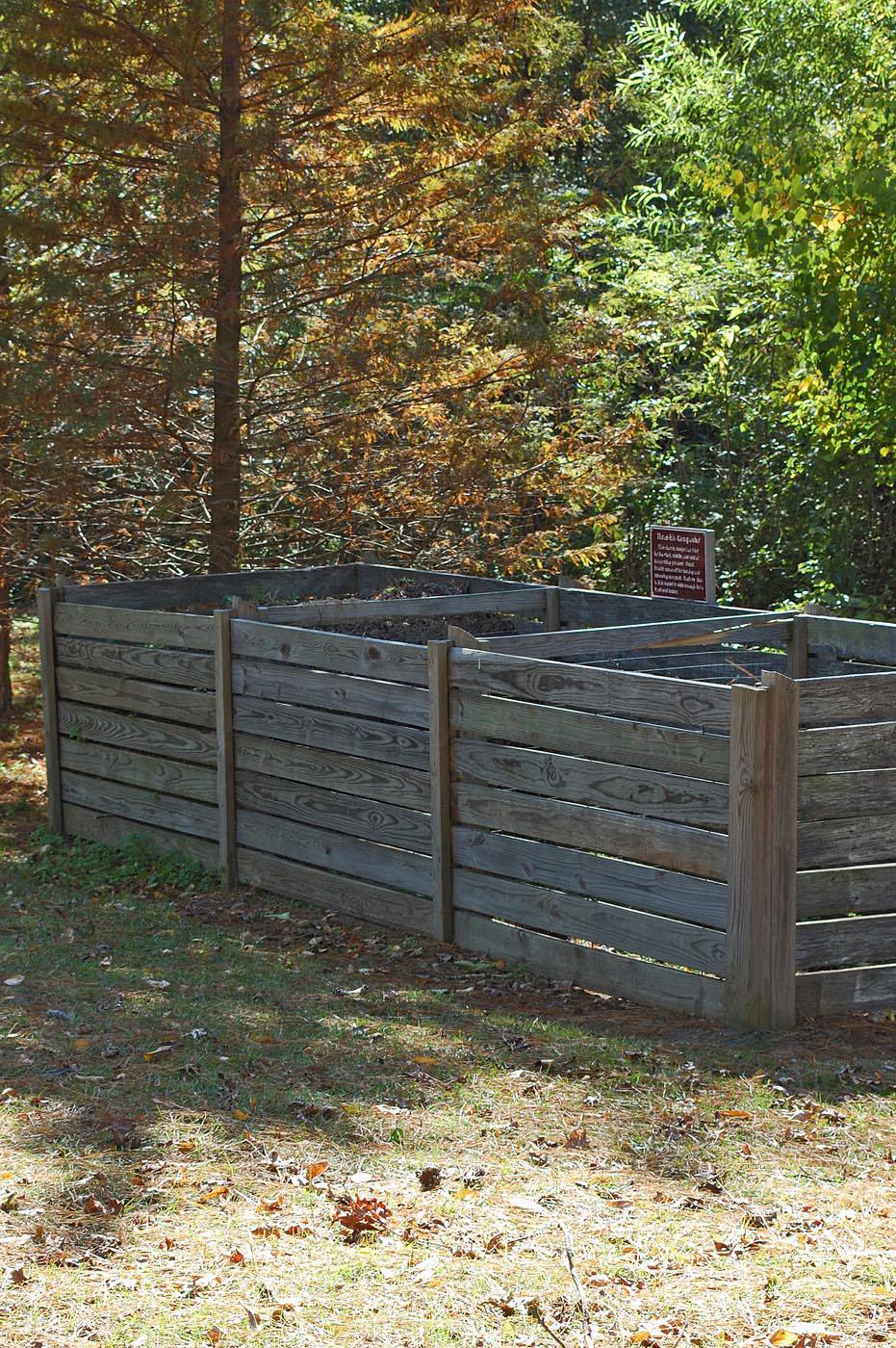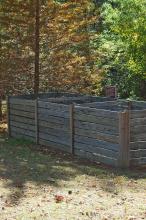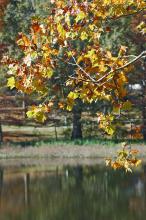Information Possibly Outdated
The information presented on this page was originally released on November 20, 2008. It may not be outdated, but please search our site for more current information. If you plan to quote or reference this information in a publication, please check with the Extension specialist or author before proceeding.
Unearth black gold from yard compost
By Norman Winter
MSU Horticulturist
Central Mississippi Research & Extension Center
You may have heard the term black gold in your lifetime. While it is most often associated with oil, gardeners worth their salt will associate the phrase with compost. Compost is that dark, crumbly, organic material that is often a prerequisite for the green thumb.
Every year we use a lot of pine bark mulch in the walkways at Mississippi State University's Truck Crops Experiment Station in Crystal Springs. After the Fall Flower and Garden Fest, the mulch is scooped up and placed into a big pile. From my standpoint, it was out of sight and out of mind. At least that is the way it was until the farm manager showed me the pile and asked if I wanted to use it in some of the beds.
We had quite a treasure! Despite being a larger quantity than most home gardeners put in a compost pile, it had broken down and become unrecognizable. It had turned into a wealth of rich organic matter that our plants would relish.
All over the country there is a wonderful opportunity facing gardeners right now. Certainly, many see it as unpleasant work. Yes, I am talking about raking and disposing of leaves. I'll sheepishly admit I fretted a little when I saw how many of my neighbor's maple leaves had found their way into my yard.
My Master Gardener friend in Ocean Springs doesn't worry about fallen leaves. The last time I was at his home I was as impressed by his compost bin as I was by his glorious gingers and firespikes blooming. This was the best compost setup I have ever seen in a home garden. It was a series of three bins holding different stages of decomposition.
The system was larger than most gardeners use and looked like a slatted enclosure around a commercial air-conditioning unit. The slats could be moved for turning, transferring, gathering or allowing gardeners to build up the piles as needed to accommodate plant material.
The bin was quite large at the time because my friend was eager to gather grass clippings and bags of leaves that others had placed at the curbside to be picked up and placed in the landfill.
Compost piles can reach temperatures of 150 degrees inside from the heat given off by the microorganisms. I love seeing the large piles of composting cotton burrs in the Delta on a crisp morning. They will be smoking as if they are cooking. Actually, they are cooking up something good for us to use in the landscape.
But back at home you can do the same thing by layering leaves or grass clippings 3-8 inches tall, covering them with 2-3 inches of top soil, and repeating the layers. The grass clippings provide nitrogen that aids in decomposition. This time of the year, when clippings are sparse, add a half cup of ammonium nitrate per 8 bushels of leaves.
You may be worried that compost piles will stink, but under proper conditions they do not have an unpleasant odor. Keep the pile moist, not soggy, and well aired for good microbial growth, good heating and decomposition. Lack of moisture and air will reduce microbial activity. Too much moisture may cause undesirable decomposition, which can lead to foul odor.
When the center of the pile is broken down, it is ready to use. With proper nitrogen and turning of the grass clippings, this process can take as little as 10 to 12 weeks. Leaves take a little longer, and larger pieces of plant material, such as wood chips or limbs, may take six months to a year.
One of my favorite methods of building a compost bin is to use discarded wood pallets. You can easily make a square bin from four pallets by wiring the corners together. This setup allows plenty of access for turning. When the compost is ready, just remove one side. Wire enclosures are also easy to make.
Raking and composting those leaves may look like work, but it's really like harvesting black gold that will give you a green thumb next summer.









